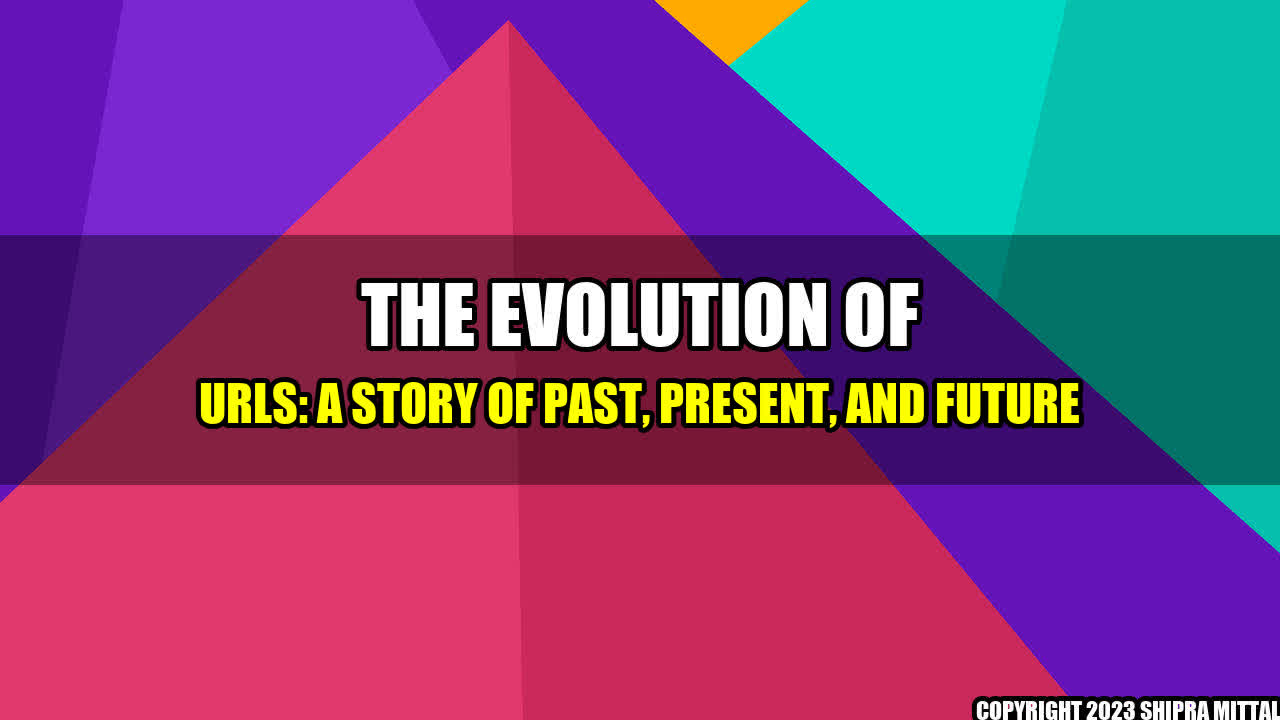It was the year 1991, and Tim Berners-Lee, a software engineer at CERN in Switzerland, had a vision. He wanted to create a way for scientists to access and share information with each other from anywhere in the world. That's when he invented the URL (Uniform Resource Locator), a simple yet powerful tool that changed the way we access information online.
Since then, URLs have evolved tremendously. What started as a simple string of characters has now become a complex system of symbols and codes that can transport us to any corner of the internet. Let's take a look at some real-life examples of how URLs have changed over time:
Example 1: Amazon.com
Amazon.com, founded in 1994, is one of the oldest and most successful e-commerce websites. Its URL, https://www.amazon.com, is a fascinating example of how URLs have changed in the last three decades. Back in the day, URLs were simple and straightforward. But as more and more websites started popping up, website owners realized the importance of having a unique identity. That's when the concept of domain names and subdomains was introduced.
Amazon.com's domain name, "amazon," is easy to remember and unique. The "www" in the URL stands for "world wide web," which used to be an essential part of URLs back in the day. But now, it's optional, and you can access Amazon.com by typing https://amazon.com.
Example 2: Google Search
Google, founded in 1998, is the most popular search engine in the world. Its URL, https://www.google.com, is a perfect example of how URLs have become shorter and more user-friendly over time. Earlier, URLs used to be long and cryptic, with a lot of unnecessary parameters. But now, URLs are designed to be simple, easy to remember, and meaningful.
If you type a query in Google's search bar and hit enter, you'll notice that the URL changes dynamically. For example, if you search for "best pizza places in New York," the URL will change to https://www.google.com/search?q=best+pizza+places+in+new+york. The search query is encoded in the URL, making it easier to share and remember.
Example 3: Bitly
Bitly, founded in 2008, is a URL shortening service that helps you make long URLs shorter and more manageable. Its URL, https://bitly.com, is an example of how URLs have become more creative and fun over time. Bitly's domain name is short and catchy, making it easy to remember and share.
Bitly's primary service is to shorten URLs, which is extremely useful in today's world, where social media sharing is a norm. For example, if you wanted to share a long URL on Twitter, which has a strict character limit, you can use Bitly to shorten the URL while still retaining its functionality. The shortened URL looks something like https://bit.ly/3yaKtHp, which is easier to remember and share.
The Future of URLs
As we move towards a more connected world, URLs will continue to play a vital role in how we access and share information online. With the advent of new technologies like blockchain and the Internet of Things (IoT), URLs are expected to become even more secure, transparent, and decentralized.
However, with the increasing concerns around privacy, some experts believe that URLs could become less relevant in the future. Alternatives like the Decentralized Identifier (DID) and the Self-Sovereign Identity (SSI) are being explored as potential replacements for URLs, as they offer greater control and privacy to users.
Conclusion
URLs have come a long way since their inception in 1991. They started as a simple tool to access information online but have now become an intrinsic part of our daily lives. Companies like Amazon, Google, and Bitly have leveraged URLs to create unique identities and provide better services to their users. However, the future of URLs is uncertain, and we could see alternatives taking their place in the years to come.
References and Further Readings:
- Berners-Lee, T. (1991). WorldWideWeb: Proposal for a HyperText Project. CERN.
- https://www.amazon.com
- https://www.google.com
- https://bitly.com
- https://www.w3.org/Consortium/
- https://www.iotforall.com/what-is-blockchain-technology-an-explainer-for-business-professionals
- https://www.w3.org/DID/
- https://www.hyperledger.org/use/ssi
Hashtags:
- #URLsEvolution
- #TimBernersLee
- #Amazon
- #GoogleSearch
- #Bitly
- #BlockchainTechnology
- #DecentralizedIdentifier
- #SelfSovereignIdentity

Akash Mittal Tech Article
Share on Twitter Share on LinkedIn